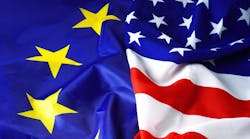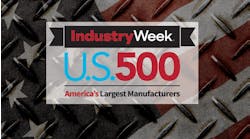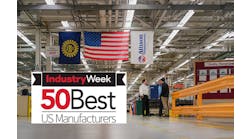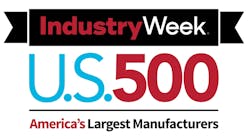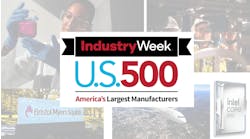The U.S. Department of Commerce announced October 31 that it would drop tariffs on steel and aluminum imported from the E.U. and replace them with a quota system to allow for some duty-free tax imports. In exchange, the E.U. dropped its own retaliatory tariffs on imported U.S. goods like bourbon and Harley-Davidson motorcycles. The deal also includes a framework for the US and E.U. to cooperate on environmental standards and global steel overproduction in the future.
Instead of a static import on all tariffs, the new tariff-rate quota system will allow for duty-free imports above a certain tonnage per year, after which new tariffs of 25% on steel and 10% aluminum will kick in. Although officials did not disclose how much steel would be let in before tariffs are applied, a source cited by Reuters put the number at 3.3 million tons.
The announcement, which effectively undoes Trump-era tariffs on imported metals from Europe, was warmly received by the American Iron & Steel Institute (AISI) and Cleveland-Cliffs CEO Lourenco Goncalves, who had previously called for the tariff-rate quota system. The U.S. Chamber of Commerce and the Coalition of American Metal Manufacturers and Users (CAMMU) both praised negotiators for dropping tariffs but called for further action.
The announcement is “great news for America’s steel and aluminum industries and workers,” said Secretary of Commerce Gina Raimondo, and added it would provide relief for manufacturers struggling with supply shortages. The deal will also allow both parties to take carbon emissions into account for future negotiations and counteract China, she said in a Commerce Department release.
“The lack of environmental standards in places like China is part of what drives down their costs,” Raimondo said, and thanked EU President Ursula von der Leyen and Executive VP Valdis Domrovskis for their role in the negotiation.
With the dispute in the rearview mirror, Trade Ambassador Katharine Tai said in the same statement, the U.S. is in a better position to address China’s overproduction of steel.
Lourenco Goncalves, CEO of Cleveland-Cliffs, praised the deal for its tariff-rate quota framework and recognition of different climate-change standards.
“This tariff rate quota arrangement will guard against a harmful surge of steel imports from the EU,” said Goncalves. In a release from Cleveland-Cliffs, Goncalves said the deal “recognizes that the United States has the most environmentally friendly steel industry in the world.”
American Iron & Steel Institute CEO Kevin Dempsey echoed Goncalves’s praise of the tariff-rate quota and expressed hope that it would lay the groundwork for the two parties to address global steel overproduction by China. “We urge the U.S. and EU to take active steps to hold China and other countries that employ trade-distorting policies to account,” his AISI statement said.
The U.S. Department of Commerce and the Coalition for American Metal Manufacturers and Users (CAMMU) both praised the negotiators for lowering tariffs but questioned the decision to replace it with a tariff-rate quota.
CAMMU expressed concern the tariff-rate quota system could lead to inflexibility in the face of a sudden spike in demand for metal and noted that one such spike could be on the horizon thanks to President Biden’s infrastructure bill. “The U.S. domestic steel sector does not need protection from competition,” according to the Coalition statement.
Chamber of Commerce Executive VP Myron Brilliant, in a statement, said “The deal announced today offers some relief for American manufacturers suffering from soaring steel prices and shortages, but further action is needed.” He said that Section 232 tariffs against imports from other countries like the U.K., Japan, and Korea should also be dropped.
